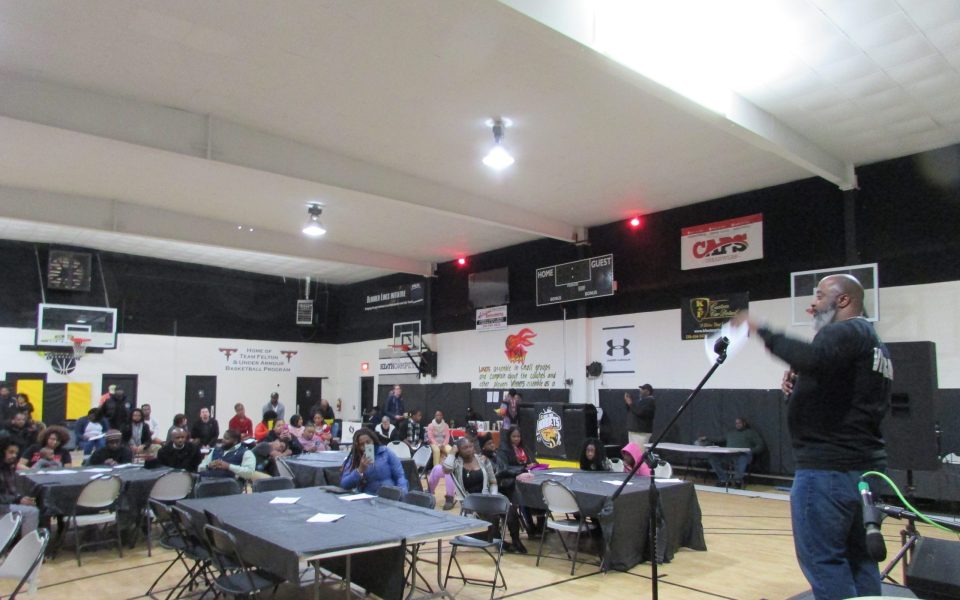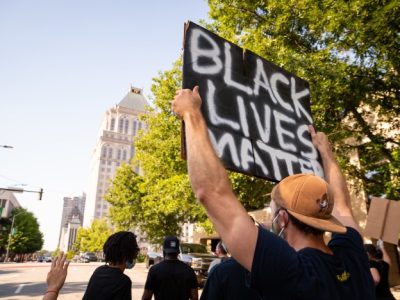Since I attended my first Martin Luther King Day service as a pre-teen in Frankfort, Ky. in the late 1980s, I’ve observed a common theme from speakers who were King’s contemporaries or slightly younger: The dream remains unfulfilled. There’s still work to be done.
That frame was always hard for me to embrace. Of course, there’s still unfinished work. But that assumes that progress is linear. Some things have improved since King’s 1968 assassination, but in other ways conditions have deteriorated. The drug war and mass incarceration, deindustrialization and the loss of jobs that sustained working-class black families coupled with the dismantling of welfare — that all transpired after the crest of the civil-rights movement led by King. And that doesn’t even grapple with what aspect of King’s dream we’re measuring. Is it civil rights as a cornerstone of equal protection under the law as a constitutional guarantee for people of all races, women, LGBTQ people and people with disabilities? Is it black America? Is it the Poor People’s Movement, labor unions and the struggle against militarism that preoccupied King in the last few years of his life?
I don’t want to attend any more valedictory King Day celebrations. So I was happy to learn that a group of community leaders loosely connected to Black Lives Matter Greensboro organized the first annual King Day Holiday Special and State of the Community at the Triad Basketball Academy in northeast Greensboro on Monday. While showcasing local black music artists, and providing free childcare and a meal, the event included presentations on a host of topics, from local elections and police accountability to minority contracting, the conditions of city sanitation workers and violent crime.
I asked CJ Brinson and Brandi Calhoun, two of the event organizers, how they might see their work in the struggle as different or not so different from King and his contemporaries.
“We became so preoccupied with the dream that we fell asleep,” said Brinson, a 29-year-old community organizer who ran for city council last year. “This is the generation of people staying woke. The dream has been reduced to black faces being put in high places to sell this idea of American exceptionalism.
“For the masses of people of color, the promises of civil rights have not been fulfilled,” he added. “In 1968, King was aware of that. The forces that took his life stifled that voice.”
Millennial activists possess a sense of urgency that is lacking in older leaders who have become complacent with the acquisition of status and material wealth, Brinson said. But for Calhoun, the 26-year-old childbirth education manager at the YWCA of Greensboro, intergenerational linkages look like a source of strength. While expressing gratitude for elders, she also said she was happy that her 11-year-old daughter could attend a celebration in a black-centered space that is welcoming and inclusive while promoting what she sees as the “core” of King’s message.
“This is an opportunity for my daughter to conceive and carry out his work,” she said. “My daughter is one of those radical babies who’s going to pick up the struggle and move it forward when I die.”
Join the First Amendment Society, a membership that goes directly to funding TCB‘s newsroom.
We believe that reporting can save the world.
The TCB First Amendment Society recognizes the vital role of a free, unfettered press with a bundling of local experiences designed to build community, and unique engagements with our newsroom that will help you understand, and shape, local journalism’s critical role in uplifting the people in our cities.
All revenue goes directly into the newsroom as reporters’ salaries and freelance commissions.





Leave a Reply